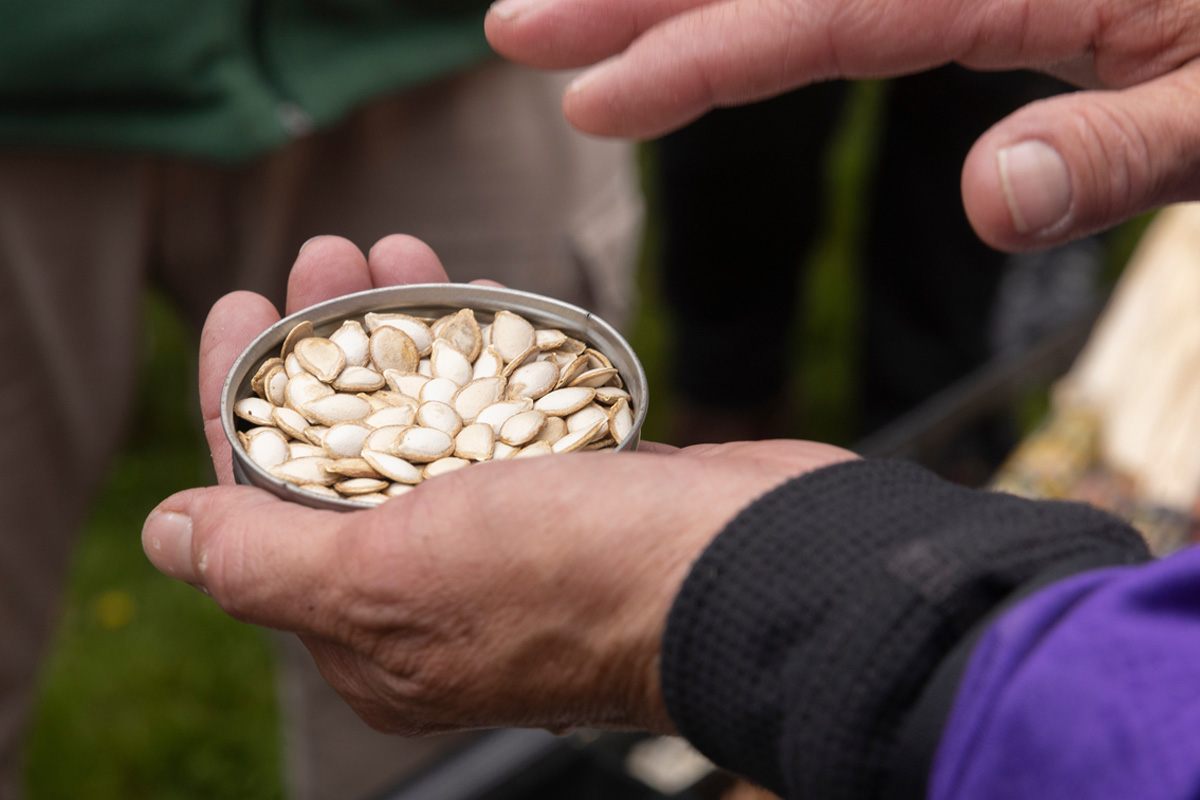Sowing seeds: Alumnus advocates for better access to higher education for Native Americans

When Alan Kriesel ’84, a Watson College alumnus, learned about new diversity initiatives at Binghamton University, he wanted to know what else could be done to improve access and outcomes for Native Americans. He reached out to Miquel Baique, assistant dean of diversity, equity and inclusion at Watson College, to offer his help.
Kriesel, a member of the Mohawk tribe — one of the six nations of the Haudenosaunee (Iroquois) Confederacy — grew up in Campville, N.Y., about 20 miles west of campus. He attended Binghamton as a transfer student from SUNY Broome Community College, earning a bachelor’s degree in industrial technology.
“I have good memories as a commuting student at Binghamton University,” Krisel said. “It was a demanding but rewarding experience.”
Kriesel lives in the Dallas-Fort Worth metro area and recently retired from a career in defense aerospace and telecommunications engineering.
“I had just finished reading an article in Watson’s alumni magazine about diversity programs at Binghamton and was interested in finding out if there was an opportunity to help more Native American students,” Kriesel said. “As a Mohawk Native American, the original upstate New Yorker, I know that Native Americans are the minority of minorities and significantly underrepresented in higher ed. And I thought I could help change that.”
Identifying a problem, finding solutions
For many communities, first-generation status and socio-economic circumstances create barriers to higher education that are both expositional and financial. Baique is aware of these barriers to mobility and has focused on building bridges through scholarships and programs that offer students financial assistance, as well as mentorship and academic support.
Like at other public universities located on Native American ancestral land, Indigenous enrollment at Binghamton University is low. Despite enhanced diversity initiatives and consciousness of recruitment efforts, less than 0.1% of the University’s student population identifies as belonging to any of the 574 federally recognized North American tribes.
Sowing Seeds
After speaking with Baique and finding him receptive to improving outreach efforts, Kriesel mobilized.
“I contacted every recognized [Native American] reservation in New York state about the opportunities and assistance available through diversity programming at Binghamton,“ he said.
Although Kriesel’s initial efforts have yielded limited response, Baique acknowledges that it will take time for these connections to gain traction.
“There still is so much we can do to reach out to these underrepresented populations,” Baique said, “and it’s going to take some effort on my part. I need to meet these people where they are now, in their communities. It’s going to take time to build trust and create awareness.”
Launching AALANA
In the meantime, Baique has been looking for ways to improve access and find new points of entry for Indigenous people. In September, Watson College launched the African American, Latinx American and Native American (AALANA) Success Fund, which provides scholarships and continuing education opportunities.
The AALANA fund delivers a one-time $1,000 scholarship to undergraduate or graduate students, up to $500 in conference-related fees and mentorship support. Each year, two scholarships will be awarded to Native American undergraduate students and two scholarships to African American or Latin American graduate students.
Additionally, Watson College will issue up to 10 vouchers each academic year to Native American or Alaska Native students for continuing education courses administered through the Watson Office of Industrial Outreach. The vouchers will support a students’ initial exploration or ongoing education in engineering, computer science or other sought-after certificate programs.
“Not only will students have opportunities to become micro-credentialed in areas like leadership development or data science,” Baique said, “but by getting them ‘in the door,’ we can help them access all the opportunities and resources available to them as Binghamton University students.”
For Kriesel, it’s about broadening outreach.
“Reservations and Indigenous people have historically been located in remote and isolated regions with few educational and employment opportunities. To me, this was by design,” Kriesel said. “Because of these conditions, most Native Americans are rural and poor with little opportunity for advancement. I think a good next step is to reach out to local high schools and community colleges near reservations to increase awareness of available programs. I’d also like to see initiatives targeting Native American students happening across the University.”
Baique sees Watson’s expanded efforts on behalf of Native American students as potentially having a positive influence across the University.
“Whether they come to Watson or we get them through Harpur College or Decker College,” Baique said. “I see our diversity initiatives as having a University-wide impact. We’re one University and this is about what Binghamton can offer to the community.”
